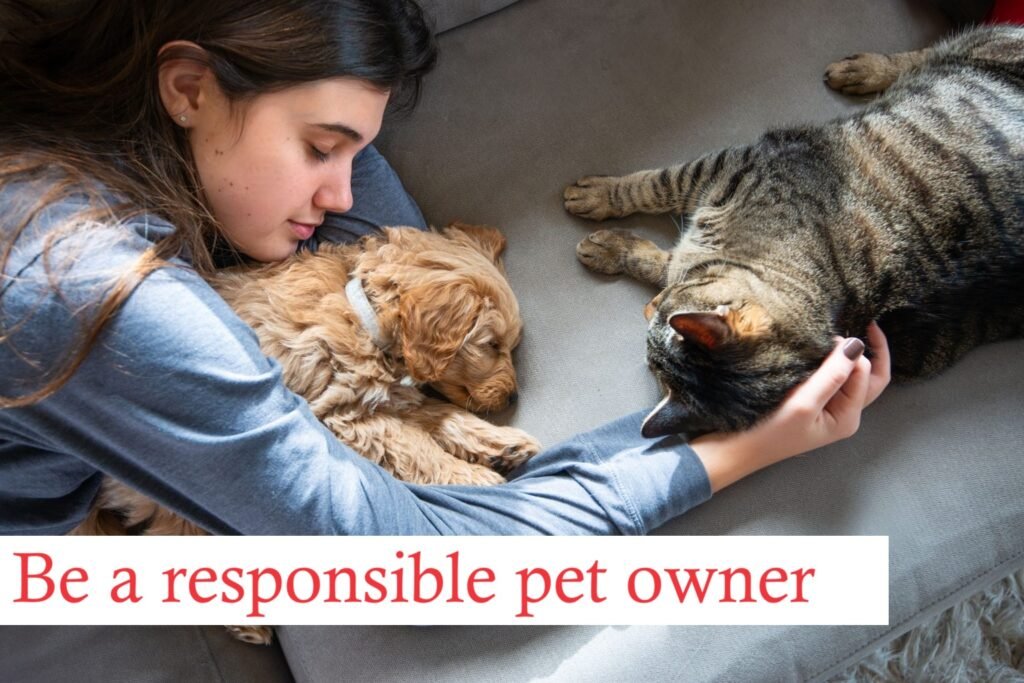Golden Retrievers are one of the most loved dog breeds in the world. They are known for their friendly personality, intelligence, and versatility and are great pets and companions. Whether you consider bringing a Golden Retriever into your family or simply want to learn more about this wonderful breed, this guide covers everything you need to know. This guide has all the details, from their history and personality to their care and health needs.
The Golden Retriever: A Loyal and Smart Breed
Origins and Early Development
Golden Retrievers were first bred in Scotland in the 19th century by Lord Tweedmouth, who wanted to create the perfect hunting dog. He bred the now-extinct Yellow Retriever with the Tweed Water Spaniel and later added Bloodhounds and Irish Setters. This created an excellent dog for retrieving game on land and water.
This dog breed quickly became popular as family pets because of their outstanding hunting skills, intelligence, and gentle nature. The American Kennel Club (AKC) officially recognized the breed in 1925. Today, Golden Retrievers are loved as pets and highly valued as working dogs, serving as therapy and assistance dogs.
Interesting Fact:
Golden Retrievers starred in multiple Hollywood films, such as “Air Bud” and “Homeward Bound,” which boosted their popularity worldwide.
From Hunting Dogs to Family Pets
Golden Retrievers have evolved from their hunting dog origins to become perfect all-around companions and service animals. Their intelligence and willingness to please make them great for tasks like guiding the visually impaired, providing therapy, or rescuing needy people. Their calm and friendly nature also makes them a popular choice for families.
Expert Tip:
“Early socialization and training play a vital role in shaping a well-rounded Golden Retriever. The breed’s innate intelligence and willingness to learn can be maximized when exposed to new environments, sounds, and experiences during puppyhood,” says Dr. Susan Blake, a certified canine behaviorist.
Physical Characteristics of the Golden Retriever
Size and Build
Golden Retrievers are medium—to large-sized dogs with strong, athletic bodies. Their well-proportioned bodies allow them to move smoothly and elegantly.
| Characteristic | Males | Females |
| Height | 23 to 24 inches | 21.5 to 22.5 inches |
| Weight | 65 to 75 pounds | 55 to 65 pounds |
| Build | Strong, muscular, broad head | Slightly smaller, athletic |
| Coat Type | Dense, water-repellent | Dense, water-repellent |
| Coat Color | Various shades of gold | Various shades of gold |
Coat and Color
Golden Retrievers have a thick, water-resistant coat that protects them in different weather conditions. Their outer coat can be straight or slightly wavy, while their undercoat is soft and helps insulate them. They come in various shades of gold, from light cream to deep golden. Regular grooming is important to manage their shedding, especially during seasonal changes.
Eyes and Expression
Golden Retrievers have warm, intelligent eyes, usually dark brown. Their friendly and curious expressions make them approachable and loved by many.
Movement and Gait
Golden Retrievers are known for their smooth, graceful movements. They walk and run with effortless fluidity, reflecting their athletic nature, making them ideal for retrieving games.
Temperament and Personality Traits
Intelligence and Trainability
Golden Retrievers are among the most intelligent dog breeds. They are fast learners and are often used in complex tasks such as search and rescue or service jobs. Their eagerness to please makes them one of the easiest breeds to train. According to a Dog Behavior Expert, “Golden Retrievers are not just intelligent; their keen understanding and ability to connect with humans make them excellent companions.”
Loyalty and Affection
Golden Retrievers are famous for their loyalty and affectionate nature. They form strong bonds with their families and are known for being patient and gentle, especially with children. Their friendly demeanor makes them great family pets.
Socialization with Other Pets
Golden Retrievers are naturally social and get along well with other animals, including cats and dogs. Early socialization helps them adapt and become well-adjusted members of any household.
Living Conditions and Space Needs
Ideal Living Environment
Golden Retrievers can adapt to different living conditions but do best in homes with enough space to move and play. A backyard is ideal for their activity needs, but they can also live in apartments if they get enough daily exercise and stimulation.
Exercise Requirements
Golden Retrievers are energetic and need daily physical activity to stay happy and healthy. They need at least one to two hours of exercise daily, including walking, running, or swimming.
Tip 1:
Providing puzzle toys or teaching new tricks helps keep a Golden Retriever mentally engaged, which can reduce boredom-related behaviors like chewing.
Training and Physical Activity
Training Approach
Golden Retrievers respond well to positive reinforcement training. Their eagerness to please and sensitivity to feedback makes them ideal candidates for reward-based training. Early training helps them grow into well-behaved adults.
Exercise and Mental Stimulation
Besides physical exercise, Golden Retrievers also need mental challenges. Games like fetch and agility training keep their minds sharp and engaged.
Health and Lifespan
Common Health Problems
Golden Retrievers are prone to certain genetic health issues. It is important to be aware of these to keep your dog healthy:
- Hip Dysplasia: A genetic condition affecting the hip joints, leading to arthritis and mobility issues.
- Elbow Dysplasia: Another joint issue that can cause pain and lameness.
- Cancer: They have a higher risk of certain cancers, such as hemangiosarcoma and lymphoma.
- Heart Problems: Some Golden Retrievers are prone to heart issues like subvalvular aortic stenosis (SAS).
- Allergies and Skin Problems: Some may develop skin allergies, requiring special care.
Lifespan and General Care
Golden Retrievers live 10 to 12 years. To ensure a long and healthy life, they should be fed a balanced diet, regularly exercised, and visited by the vet for routine check-ups.
Care Tips
- Diet: Feed your Golden Retriever high-quality dog food suitable for age and activity level. Monitor its weight to avoid obesity.
- Grooming: Brush your dog regularly to manage shedding. They shed the most during spring and fall.
- Health Checks: Regular vet visits can help catch any health issues early.
Compatibility with Families and Other Pets
Interaction with Children
Golden Retrievers are perfect for families with kids. Their patient and gentle nature makes them great companions for children. However, I always supervise playtime with young kids.
Getting Along with Other Pets
They are usually good with other pets, including cats and dogs. Early socialization and proper introductions help ensure a peaceful multi-pet household.
Tip 2:
A Golden Retriever’s calm demeanor helps them adjust well to new environments, making them ideal for families that might move frequently or experience life changes.
Adoption vs. Buying: What’s the Best Option?
Why Adopt?
Adopting a Golden Retriever from a shelter or rescue group can be a rewarding experience. Many loving dogs need homes, and adopting helps reduce the demand for puppy mills.
Finding a Good Breeder
If you choose to buy, make sure you find a responsible breeder. Look for one who performs health screenings and is open about their breeding practices. Avoid puppy mills or breeders who care more about profit than the dogs’ well-being.
Conclusion
Golden Retrievers are loved for their intelligence, loyalty, and affectionate nature. They make great pets for families, individuals, and anyone looking for a versatile companion. With the right care, exercise, and training, Golden Retrievers can bring joy and companionship for many years. Understanding their needs will help you create a lifelong bond with this unique breed, whether you adopt or buy.



